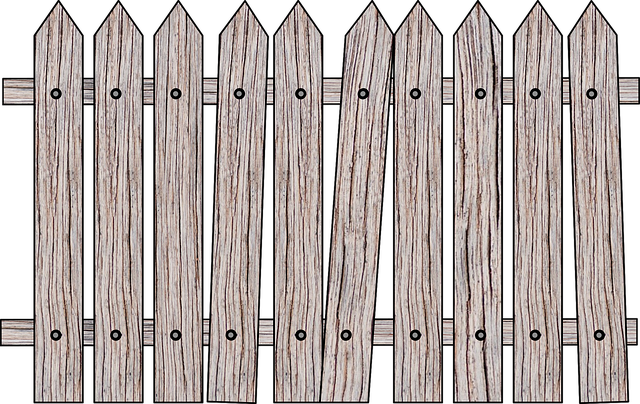In New Bedford, MA, ensuring the longevity and quality of your fence investment is paramount. This article serves as a comprehensive guide through the intricate world of fence warranties and guarantees, offering crucial insights for both residential and commercial property owners. From understanding coverage to navigating claims processes, we demystify these essential protections. By exploring various warranty types and common exclusions, you’ll be equipped to make informed decisions, ensuring your fence stands the test of time in New Bedford’s diverse climate.
- Understanding Fence Warranty Coverage in New Bedford
- Types of Guarantees for Residential Fences
- Commercial Fence Warranties: What to Expect
- Common Exclusions and Limitations
- Filing a Claim: A Step-by-Step Guide
Understanding Fence Warranty Coverage in New Bedford
When it comes to fence installations or repairs in New Bedford, understanding the warranty coverage is essential for homeowners. A fence warranty is a crucial document that outlines what is covered and for how long. It provides peace of mind, assuring property owners that their investment in a new fence or repairs is protected. In many cases, warranties cover materials and labor for a specific period after installation.
In New Bedford, MA, as with anywhere, different types of fences may come with varying warranty terms. Wooden fences, for instance, might have longer warranty periods due to their natural resistance to elements compared to vinyl or metal fences. Homeowners should carefully review the fine print, understanding what constitutes a valid claim and any exclusions or limitations. This knowledge will help them navigate potential issues and ensure they receive the appropriate support when needed.
Types of Guarantees for Residential Fences
When it comes to residential fences in New Bedford, MA, homeowners have several guarantee options to ensure their investment is protected. Typically, these guarantees fall into two main categories: manufacturer’s warranties and installer’s warranties.
Manufacturer’s warranties cover defects in materials or craftsmanship that may arise due to manufacturing issues. These usually come standard with the purchase of fencing materials and offer protection for a specific period, ranging from 1 to 20 years, depending on the product and manufacturer. Installer’s warranties, on the other hand, are provided by the company responsible for installing the fence. They guarantee proper installation and structural integrity for a certain duration, often 1-5 years, covering labor and material issues that may arise from incorrect assembly or poor quality work.
Commercial Fence Warranties: What to Expect
Commercial fence warranties are designed to provide business owners with peace of mind and protection against potential issues that may arise after installation. When investing in a new fence for your property, understanding what these guarantees entail is essential. Typically, these warranties cover defects in materials and workmanship for a specific period, usually ranging from 1 to 5 years.
The scope of coverage varies but often includes repairs or replacements of any faulty components, such as broken posts, bent rails, or damaged panels. Some contracts may also extend protection against issues like rot, rust, or corrosion, ensuring the longevity of your fence structure. It’s crucial to read and comprehend the terms and conditions to know exactly what is covered and any exclusions or requirements for maintenance and care.
Common Exclusions and Limitations
Many fence warranties and guarantees come with specific exclusions and limitations, which are important to understand before purchasing. These may include situations where the warranty does not cover damage caused by extreme weather events, such as storms, heavy snow, or lightning strikes. Additionally, some warranties might not extend to issues arising from poor installation or maintenance, incorrect use of materials, or modifications made to the fence after initial installation.
It’s also common for warranties to exclude coverage for certain types of fences, like temporary or ornamental fences, and those installed in areas prone to high wind or flooding. Furthermore, some guarantees may have time limits, requiring issues to be addressed within a specific window, usually a few years after installation. Always read the fine print to ensure you’re aware of these exclusions and limitations when choosing a fence warranty.
Filing a Claim: A Step-by-Step Guide
Filing a Claim: A Simple, Yet Important Process
The first step in resolving any fence-related issue is understanding your warranty and the claims process. If a problem arises within the warranty period, homeowners should gather all necessary information before filing a claim. This includes taking photos of the damaged fence, noting the date and nature of the issue, and keeping records of all communication with the manufacturer or installer.
Next, contact the fence company or manufacturer directly to inform them of the situation. They will guide you through their specific claims process, which may involve filling out a form or providing additional details. Be sure to follow their instructions carefully to ensure your claim is processed smoothly.
